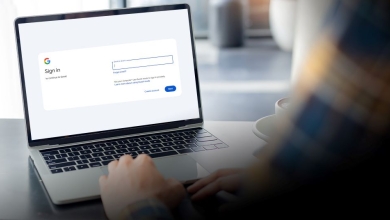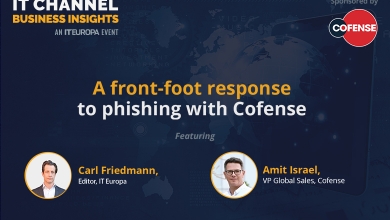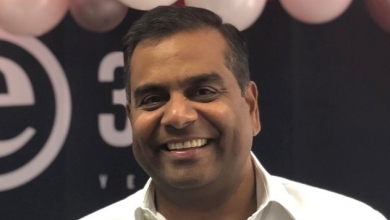Getting more adept in tackling phishing attacks is becoming a greater priority as 2022 gathers pace, especially considering how prolific they were in 2021 in their size and scope. According to Cisco's 2021 Cybersecurity Threat Trends report, for instance, phishing attacks are responsible for more than 80% of reported security incidents, and about 90% of data breaches occur because of phishing.
It’s due to this urgency to act that cloud-native phishing detection and response company Cofense has amassed a global network of 30 million people through advanced AI-based automation to quickly stop phishing threats. And in the latest instalment of IT Europa Business Insights, IT Europa Editor Carl Friedmann sat with Cofense’s VP of sales for Cofense Protect and co-founder of Cyberfish Amit Israel to discuss his experience in the Israeli security and intelligence industry leading cyber-security, cyber-intelligence and counterterrorism initiatives, and how it has dovetailed in his role at Cofense to confront and stamp out attacks.
Before joining Cofense, Israel spearheaded a unit that was coping with cyberattacks against the state of Israel in both the private and government sectors. “What I saw was that nearly everyone who was attacking was using phishing,” he says. “What was most surprising was no one could cope with it even though there were dozens of solutions out there. Everyone was buying and using them, but still nothing worked properly, so I was determined to put an end to that.”
Attackers, after all, are opportunists and they seize on major events all year around, whether it’s weather events, geo-political incursions or Covid as they all create a huge change in approaches to phishing attacks.
The main principle for a company is don’t wait for something to happen. Be proactive, preventative and have measures in place to prevent attacks, but also measures to recover once a threat has breached the company. A full range of response is crucial in today’s landscape.
Knowing how the enemy acts is essential as well, and to be better, faster and smarter in order to detect and avoid attacks. Employees also need to observe and learn about phishing and to be able to detect uniqueness in every kind of threat in order to ingrain vigilance.
Another fundamental issue Israel discusses that needs to be addressed is that 90% of cyberattacks today begin with phishing, but most companies invest more than 90% in other threats. “They spend most of their security budget in the 10% of attacks, and only 5% of it in the area where 90% of the threats come from,” adds Israel. “This should change and it’s the MSPs that are leading in this change.”
For more detail about Cofense and phishing prevention in the latest IT Europa Business Insights discussion, please click here.


